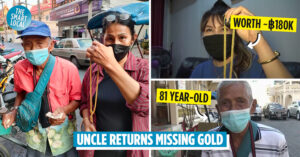Getting COVID-19 in Thailand as an expat
It started with a dry throat. I thought nothing of it at first, as I have a habit of not hydrating myself sufficiently.
But when the nausea came, alarm bells started going off. Something was definitely up, so I self-administered an ATK test. When the result came back negative, I heaved a sigh of relief.
However, my relief didn’t last long. My nausea got progressively worse. I started developing other Covid-like symptoms as well. By the third day, I was convinced I had Covid-19, even though my ATK test result continued to show up negative.
I decided to head down to a nearby hospital for a walk-in PCR test, which set me back by ฿2,500 (~USD75.23). The next morning, I received a phone call from the hospital confirming what I already knew to be true.
After over two years of successfully evading the coronavirus, my luck had finally run out.
Here’s how the rest of my experience played out, so you’ll know what to expect and what resources to turn to.
Other perspectives on The Smart Local, Thailand:
- Covid-19 almost ruined my long-distance relationship
- I used to be in a Thai-pop girl group, here’s what it takes
- I went to a Thai university & here’s my take on the hazing culture
What happens when an expat gets Covid-19 in Thailand
In the wee hours of the morning after I took my PCR test, a nurse from the hospital called me at 6AM to inform me that I had Covid-19.
Naturally, I had a million questions. But the nurse’s answer to my follow-up queries was, unfortunately, ‘I don’t know’.
I consulted with friends who had also gotten Covid recently, and was told to expect multiple hospital staff to contact me over the next couple of days. Each staff member had a specific purpose. The role of the nurse who’d called me earlier in the day was only to inform Covid-positive people about their status.
After one day, I received another call from the hospital. I was given the option of home isolation or conducting my quarantine in a hospitel. No, that’s not a typo.
Hospitels are essentially hotels that have been converted to a hospital of sorts to care for patients with mild symptoms.
Since I had no medicine at home and my health insurance would be able to cover a hospitel stay, I picked the hospitel option. I was later informed that my case had been logged into the system, and that they were making arrangements for my transfer.
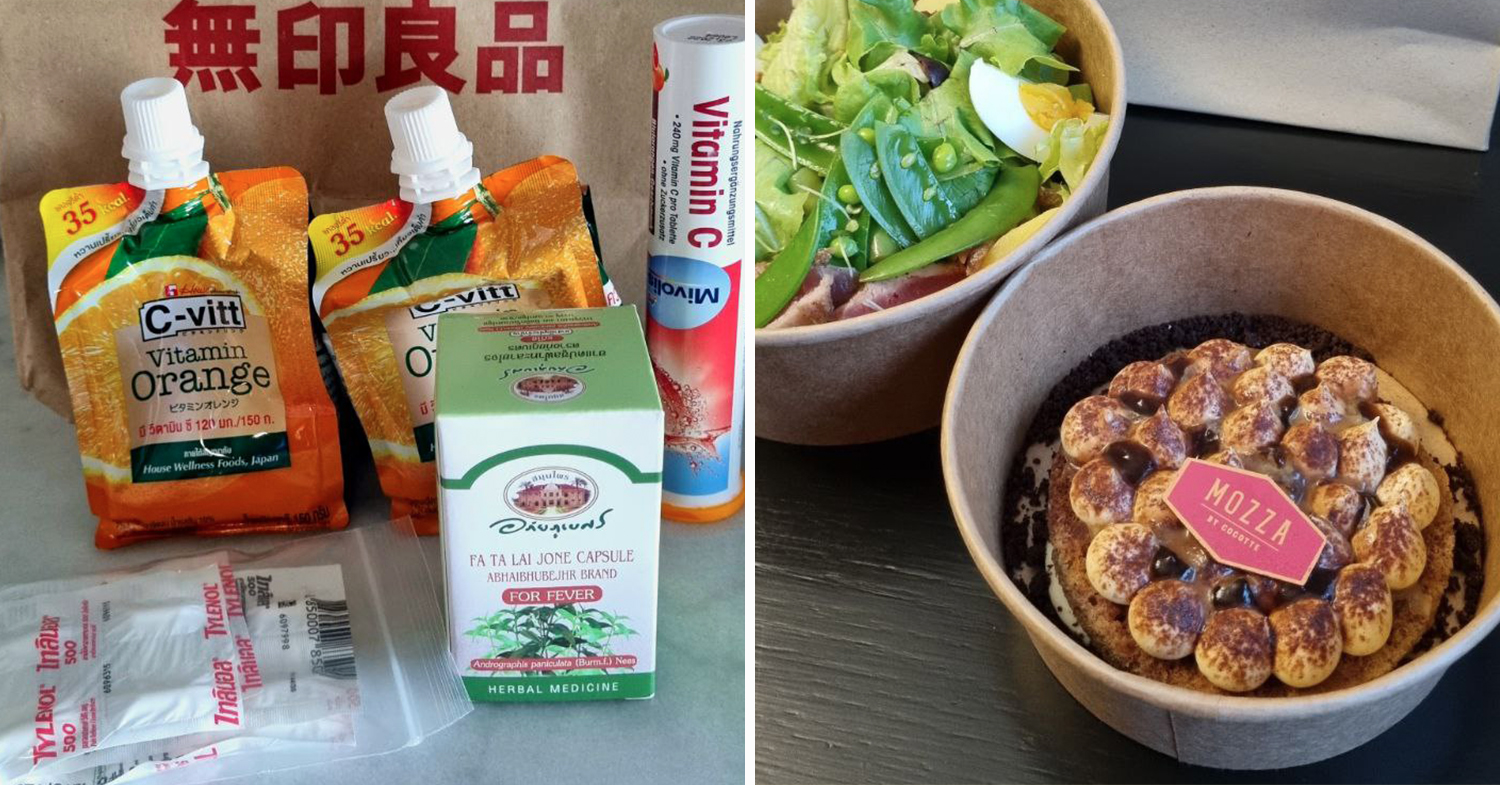 While I was waiting for my hospitel transfer, my friends kindly sent over some meals and medicine.
While I was waiting for my hospitel transfer, my friends kindly sent over some meals and medicine.
Image credit: Sean Foo
I waited patiently for an update from the hospital. But no updates came. In fact, the hospital staff that was assigned to me had disappeared and become uncontactable. Thankfully, friends who found out about my predicament sent me food and medicine to tide me through the first few days.
Finally after four days and repeated calls, I received a call from a new hospital staff member. She had taken over my case, seeing as the previous person assigned to me had all but disappeared.
Within the same day, she successfully arranged a hospitel transfer. Just before midnight, an ambulance arrived to transport me to my new home for isolation.
What it’s like staying in a hospitel
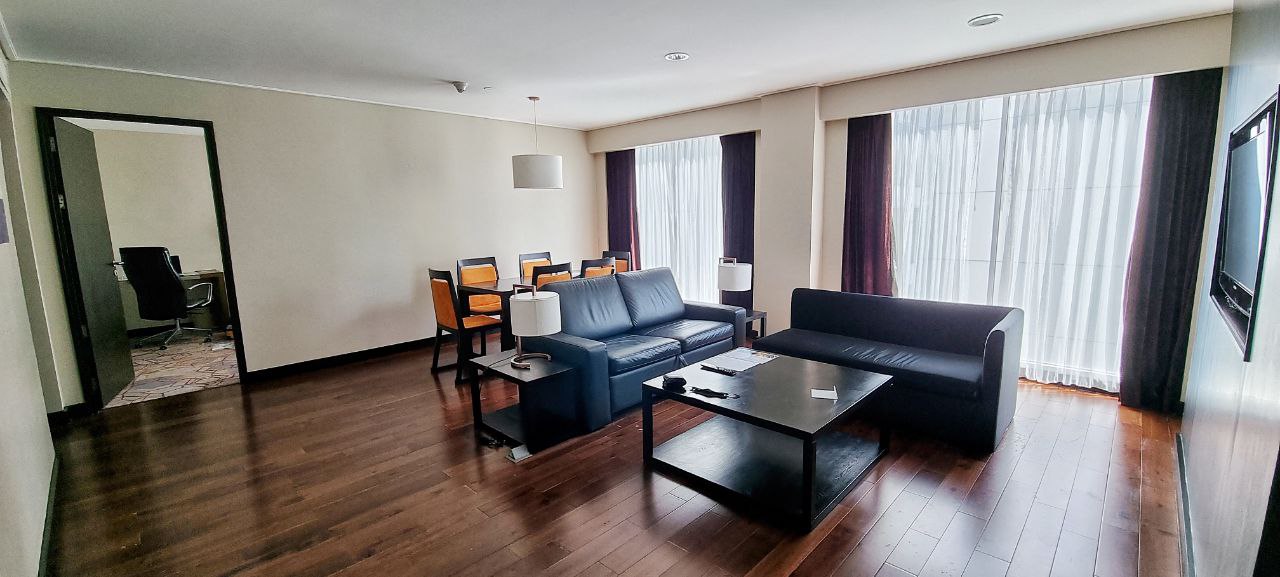 My quarantine room in the hospitel
My quarantine room in the hospitel
Image credit: Sean Foo
Having served quarantine in Thailand before, a hospitel stay was pretty much the same thing.
Upon arrival, I was given all kinds of medicine to aid in my recovery. On the first day alone, I had to take 26 pills in total. Some of the medicine is mandatory. Others are only to be taken when symptoms are present (fever, cough, phlegm).
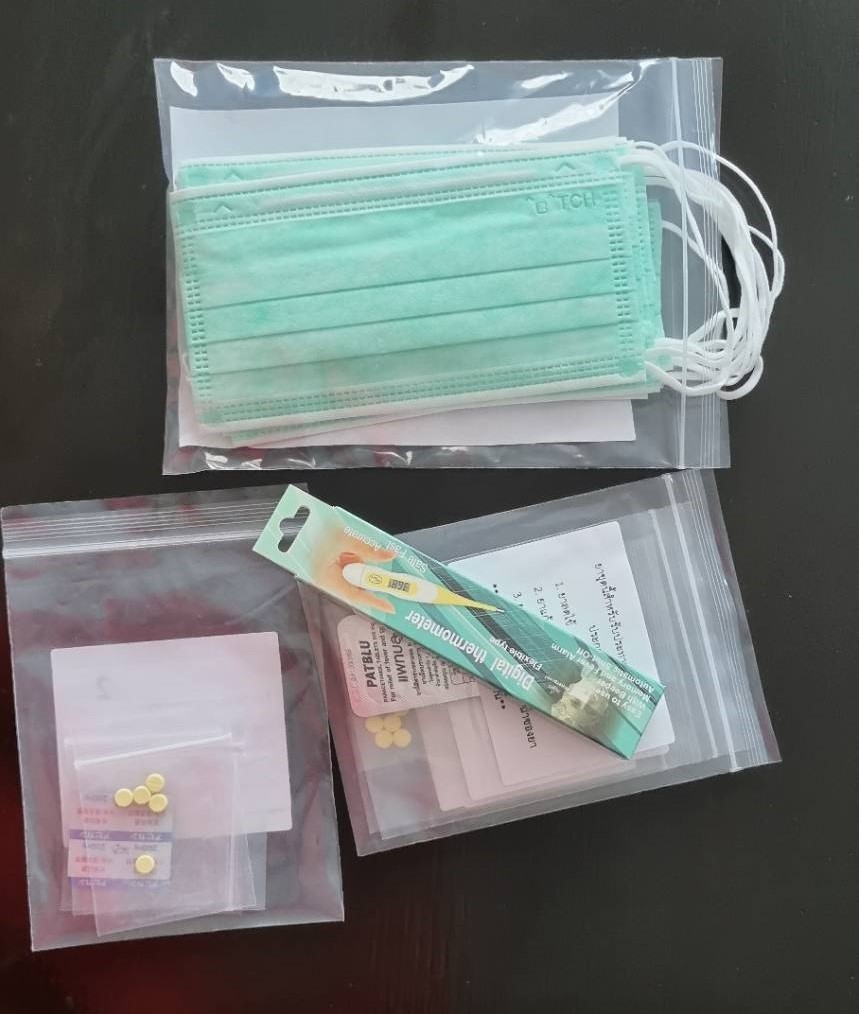
Image credit: Sean Foo
Every morning, at around 7AM, a nurse would drop by to measure my pulse and blood pressure. A doctor would also call to check in on me each day.
Three meals are provided each day at fixed timings. But don’t expect large portions or quality food. Thankfully, patients are also allowed to order from food delivery services.
 Image credit: Sean Foo
Image credit: Sean Foo
Another point to note is that access to Wi-Fi may be an issue. In my experience, the service was intermittent at best.
Based on conversations with friends, this seems to be a common issue across many hospitels. As Bangkok is experiencing a surge in cases, perhaps there’s room for improvement in ensuring that all hospitels’ IT infrastructure are properly equipped to handle the increased guest capacity.
In short, be prepared to hotspot your way through your quarantine if you need to work.
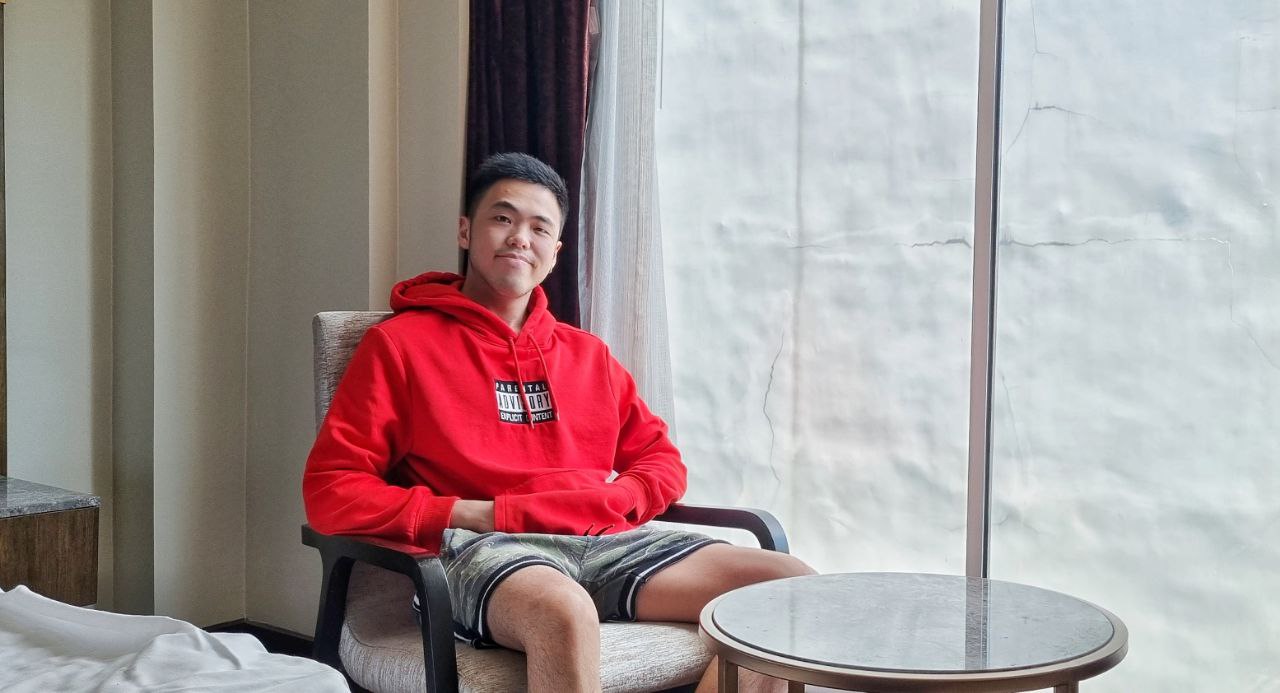 Image credit: Sean Foo
Image credit: Sean Foo
In retrospect, being diagnosed with Covid-19 was quite a confusing process. Oftentimes, I didn’t know what to do. Instead, I had to rely on advice from friends.
FAQs for getting Covid-19 In Thailand
For the benefit of everyone, I’ve compiled a list of FAQs below that I usually get.
1. Are foreigners in Thailand eligible for the home isolation scheme?
Yes. But the drawback is that once you register for the home isolation programme, you are essentially left on your own.
There is a number that you can call to get medicine. But do ensure that you’re fluent in Thai to use this channel of communication to secure medicine.
2. How is the hospitel you’re assigned determined?
The hospital that you take your PCR test at is the hospital responsible for arranging your hospitel transfer.
They would first ask for your insurance policy, and assign you to a hospitel that your insurance provider covers. Since hospitels were filling up fast due to Bangkok’s recent surge in cases, options are quite limited and you’ll likely be allocated the nearest hospitel that your insurance qualifies you for.
3. Does the hospital inform you which variant you got?
In my case, no. But based on my symptoms, I suspect that I got the Omicron variant.
4. How long do you need to stay in the hospitel?
The policy in Thailand is to isolate yourself for 10 days after you get your PCR result.
Since I was only admitted to a hospitel four days after I got my PCR result, the doctor told me that I only had to stay at the hospitel for six days.
Remember to get a certificate or some form of document from the hospitel certifying that you have recovered from Covid-19 once you are discharged.
5. Can you switch hospitels if you don’t like the one you were assigned to?
I have a friend who successfully switched hospitels midway through his stay, so I guess the answer is yes.
Stay safe & informed
I hope that by sharing my experience, foreigners who get Covid-19 in Thailand will have a better understanding of what to expect should they contract the coronavirus.
As I was double vaccinated with AstraZeneca, my symptoms were quite mild. In fact, by the time I was transferred to a hospitel, I had more or less recovered.
So in order not to overwhelm Thailand’s hospitals, do get yourself vaccinated and if possible, stay up-to-date with booster shots as well.
Cover images adapted from: Sean Foo
Enjoying The Smart Local Thailand? Follow us on Facebook and Instagram for more stories like this.

Drop us your email so you won't miss the latest news.
